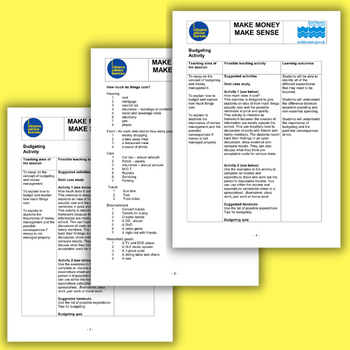Pupil voice – A guide to meaningful involvement

Effective pupil voice gives young people a stake in their learning and helps them understand how they can bring about change in a democratic system…

- by Teachwire
- Classroom expertise and free resources for teachers

Explore what pupil voice means, why it’s important and how to effectively conduct it in a non-tokenistic way…
What is pupil voice in schools?
At its most basic, pupil voice is about ensuring that all young people at school are given the opportunity to participate in the decisions that affect their learning and wellbeing.
It affords many pupil panels and student senates the chance to shape school policies.
Pupil voice though, should not apply to a small minority of pupils whose interests and skills already align with participative decision-making.
It should be an activity that involves all pupils at school. It should help quiet children gain the confidence needed to speak up, and confident pupils the patience needed to listen.
Why is pupil voice important?
Students involved in debate and decision-making will:
- gain esteem and motivation
- develop personal and social skills
- better understand the consequences of their actions
Regular debate encourages the skills and values required to fully participate and engage with government in adult life.
Behaviours modelled and encouraged during the debate – mutual respect and tolerance for different faiths and beliefs, respecting individual liberty and understanding how that links with the rule of law – are all requirements of SMSC.
Regular whole-school debates encourage:
- better staff-pupil relationships
- more effective school policies
- improved engagement
- higher standards of wellbeing
Taking students on a pupil voice journey improves their debating and analysis skills. It helps them become more measured in their opinions. They’ll need to weigh up all the information before deciding how to vote.
It also helps them to engage with what is going on in the world, enhancing their cultural awareness, and their self-belief that they do have an opinion worth sharing.
How to conduct pupil voice
So, how should you go about developing effective pupil voice in your school? A quick and effective way to encourage pupil voice for all students is to build straightforward weekly discussions into the school timetable.
The point is not to cover a topic such as ‘Are we are doing enough to stop climate change?’ in detail. It is more to bring pupils’ views to the surface and encourage them to listen and learn from each other.
In this regard, you don’t have to spend time exploring subject matter. Instead, focus on creating a safe space for pupils to discuss different topics and opinions with each other.
Over the long term, you can boost these discussions by continuing the debate across the curriculum. The debates can become the theme for the week, binding different subjects together.
Crucially, this will help establish an understanding with pupils that debates are not simply for the political realm, but that they rely on subject knowledge.
For instance, in a discussion about the merits of a detention policy, students in history lessons could learn about the Victorian attitude towards school discipline. They can use this knowledge to reflect on any lessons for the contemporary debate.
At the outset, you may find that pupils rush to a snap decision. Therefore it’s important to provide evidence on both sides of the argument. Give children the space to absorb that evidence and come to their own conclusions.
By taking the time to develop carefully researched resources – such as a lesson plan and a factsheet for pupils – you can ensure that teachers across the school feel empowered to lead an informed classroom debate.
And once the vote or other decision-making process takes place, factor in a period of reflection for students.
Ask them to note down both sides of the argument, their own personal verdict, and how sure they were in coming to their conclusion.
This will help them to grasp why they made their decision and what types of argument convinced them.
Turning pupil voice into action
Do what you can to help students turn their engagement and votes into action. This requires a commitment from you to listen to pupils’ arguments, whether that is updating policies on things like mobile phones following a debate, or taking steps to address concerns about, say, how detention is being used.
Trending
Matt Beer is head of content for Votes for Schools, a voting platform designed to inspire pupil voice.
How to avoid a tokenistic approach to pupil voice

Ask young people for their opinion, by all means. But never, ever lie to them about the extent of their influence, explains Vic Goddard…
I am certainly not against pupil voice and our young people having an input into how their school improves and develops.
However, I do think that ‘developing pupil voice’ is something that runs the risk of being a job to do because we think we should.
Ay my academy, our focus is to develop student leadership. We think it is vital to ensure our young people understand that they do have an impact on the school and wider community. They should take responsibility for their own actions and their consequences.
Focused influence
The key to this has been a clear discussion with the students about the scope of pupil voice.
I simply do not see the issue in explaining to our young people that there are some things that happen in school where decisions have to be made that don’t directly include consulting them. When we are honest and explain that, they completely understand it.
Hopefully they are all aware that I, and the other staff, have the best interests of the school as a whole and for them individually in the forefront of our minds when at work anyway. So it is not a huge leap for them to accept this.
Ultimately, then, we all agree that not everything benefits from pupil voice and student involvement. We need to focus on the aspects of school life that do.
Our prefects, for example, each sign up to a specific responsibility:
- Community
- Curriculum
- Charity
- Rewards
- Environment
These are areas where we and they feel they can inform our decision-making and provide leadership of the student body.
So, for example, if we wish to carry out some improvement work around bullying we would think about the information and insight that best comes from students and work with the ‘Community’ prefects to ensure we get the most relevant and important information available.
This may mean that they go and talk to other students and come back to us with feedback, or they actually lead the work themselves and make the improvements alongside us.
Ultimate responsibility
Some people may see this as a lip-service approach to pupil voice but I vehemently disagree. I think young people quickly see through the charade of asking their opinion but then nothing changing.
I believe this is a great deal worse than not involving them at all.
Developing students’ ‘citizenship’ is important. But giving them the message that although we have asked, we are going to ignore you, without any further explanation, really doesn’t help that happen.
In fact, I’d go as far as to say that it can actually prevent them from engaging with democracy and community improvement, as they will develop a ‘what’s the point?’ attitude.
Young people understand that there are thousands of decisions made during their school life that affect them and that we, as the responsible adults, will normally be the final arbiters of those decisions.
But they are also delighted to speak up when we can we use their unique pupil voice to inform that process.
I work for and with our students; they are fully aware of that. Whilst they are always willing to offer their insight, they accept that sometimes, the decision making comes with the responsibility I have.
Vic Goddard is headteacher at Passmores Academy, as seen on Channel 4’s Educating Essex, and is the author of The Best Job in the World; you can follow him at @vicgoddard.










